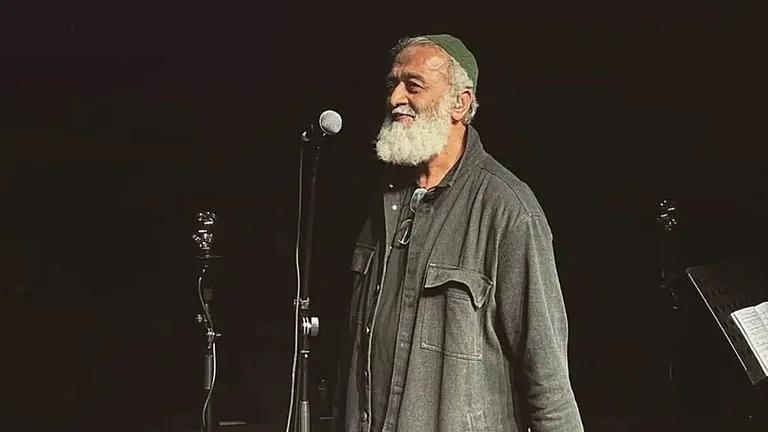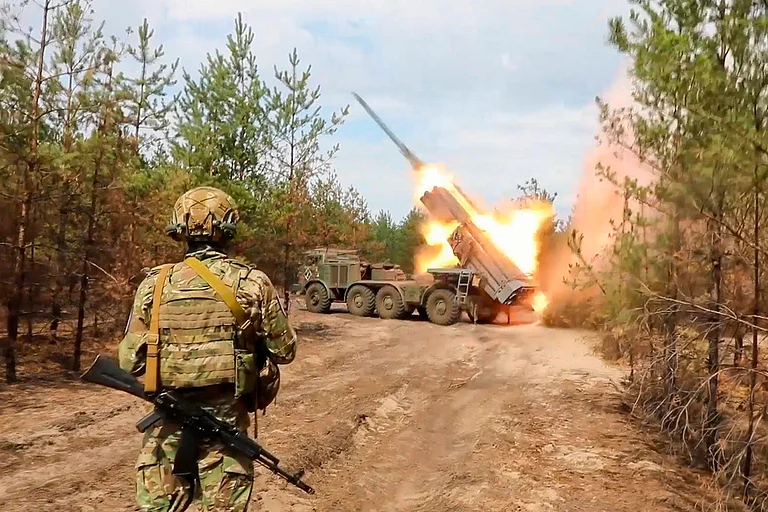President Clinton spent five days in India gushing about its virtues and lauding its leadership role beyond South Asia. He spent five hours in Pakistan warning it not to risk international isolation and become a "failed state". Rebuked by Indias president, he seemed to tread on eggshells in New Delhi. Welcomed by Pakistans chief executive, he drove into Islamabad all guns blazing. Many Pakistanis couldnt believe it - after all, India was a fierce critic of the US during the Cold War and Pakistan its closest ally.
Perhaps Clinton should have been more circumspect in Islamabad and less one-sided in New Delhi. Might not this sudden "shift" in US policy embolden resurgent India to provoke a conflict with prickly Pakistan?
Originally, Clinton was advised not to visit Pakistan as that might be construed as legitimising army rule. But he eventually decided that itd be better to "engage constructively" with a nuclear-armed military regime that enjoyed popularity at home rather than ostracise and alienate it.
Clinton went to extraordinary lengths to indicate it could not be "business-as-usual" with Gen Pervez Musharraf. He talked directly to the Pakistani people via TV. He was not seen in public with anyone in khaki. His security was managed by his own people. But there was another reason for his cold demeanour. It was Clinton whod persuaded Nawaz Sharif to order the withdrawal from Kargil last year, triggering tensions with Musharraf. But Washington bore some responsibility for emboldening Sharif to order Musharrafs sacking, thus provoking the coup. That is why Clinton sought assurances from Musharraf that Sharif would not be executed.
The gist of Clintons message was loud and clear: restore democracy, disavow terrorism, respect the LoC, sign the ctbt, unconditional dialogue with India, focus on the economy, shun an arms race. Do these things, he said, and Washington would be your friend. Dont do them and face isolation. Blunt talking. Was Musharraf listening?
In a press conference after Clintons departure, Musharraf was unusually cautious. He assured that Pakistan would never export nuclear materials or technology. He explained Pakistan would sign the ctbt only after a national consensus. He promised local elections next year but nothing on the general elections. Sharifs fate lay with the courts but he (Musharraf) was not personally "vindictive". In fact, Musharraf downplayed differences with Clinton - the talks were "cordial and frank", he smiled, there was even some friendly banter of golfing handicaps. Will Musharraf heed Clintons advice regarding peaceful relations with India?
He seems headed in the right direction. Hes keen to meet Vajpayee. He is only insisting that the "centrality" of Kashmir be recognised by India in any dialogue and not demanding an agreement to resolve the "core" dispute before anything else. There are other pointers. First, Omans foreign minister Yussuf Bin Allawi Abdullah told the press following a meeting with Clinton in Oman on March 25 that "Clinton expressed his optimism over an adequate solution to the outstanding problems between India and Pakistan, in particular the problem of Kashmir". Second, after Clinton left Islamabad, Karl Inderfurth, the US assistant secretary of state for South Asia, dashed to New Delhi to brief the other side of what transpired in Islamabad. Third, speaking to the press in Malaysia on March 28, Musharraf said the threat of war had considerably "diminished" after Clintons visit. He also said that for "moderating" mujahideen activity in Kashmir, India could "reciprocate" by improving its "human rights" record in the Valley. Fourth, while talking to former Singaporean prime minister Lee Kwan Yew, Musharraf reiterated his offer to meet Vajpayee anytime, anyplace. The ball may be in Indias court soon enough. Or am I clutching at straws?
Of course, the distrust and animosity between the two sides is palpable. The hawks in Pakistan want to use the mujahideen to "bleed India dry in Kashmir". The hawks in India want permission for "hot pursuit" across the LoC to "teach Pakistan a lesson it wont forget". April and May, when the snows melt and cross-border operations are relatively easy, are ideally suited for the pursuit of such options by both sides. The logic of the situation is that in the absence of an early dialogue, the border will most likely get hotter still. In a "limited" military conflict, neither country might be a big loser. But the political longevity of Gen Musharrafs junta would certainly be jeopardised.
In any case, Musharrafs domestic "problems" are likely to increase in the months ahead. A hard verdict in the Sharif case next week could arouse the hostility of the world community and compel the Muslim League to protest on the streets. A soft verdict would undermine Musharrafs defence in the Supreme Court where the Muslim League has challenged the legitimacy of the militarys seizure of power. Clintons strong demand for an early restoration of democracy has also emboldened other disgruntled political parties like Benazir Bhuttos ppp to threaten an alliance with the Muslim League aimed at ending military rule. A tough budget in May will alienate not just large sections of the trading and landowner classes who will have to pay new taxes but also the poor who will be hurt by the predicted belt-tightening. Finally, the business community would be devastated if, acting under instructions from the Washington, the imf and World Bank were to refuse any financial support to Pakistans ailing, debt-ridden economy.
Pakistan desperately needs some breathing space to sort its problems out. It needs to put internal stability and economic revival above angry remonstrations with the world. If Bill Clintons visit serves to bolster this viewpoint, I am glad he came to Islamabad.
(The author is the editor of The Friday Times , Lahore.)


























